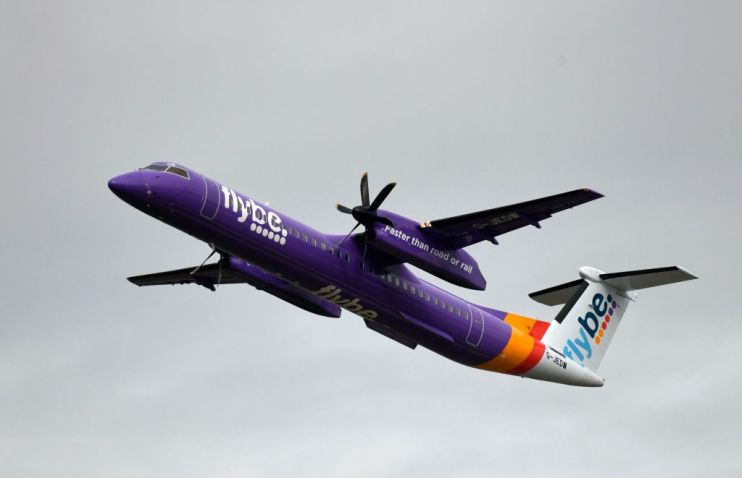Flybe’s government rescue deal is much smaller than you think

Regional airline Flybe has hit back at claims by its competitors that it has received favourable treatment from the state, after it struck a rescue deal with the government earlier this week.
The struggling carrier sought to correct reports that the government had deferred a tax bill of more than £100m to keep it aloft. Instead, it said, the bill was less than £10m.
HM Revenue and Customs has given the airline extra time to pay the bill under a so-called time to pay (TTP) arrangement – something which the department says is commonplace for businesses facing “genuine short term difficulties”.
“This agreement will only last a matter of months before all taxes and duties are paid in full,” Flybe said.
It added: “This is a standard time to pay arrangement with HMRC that any business in financial difficulties may use.”
But the rescue package, which also includes a loan of more than £100m, sparked fury among competitors Ryanair and British Airways-owner International Airlines Group (IAG).
In a strongly worded letter to chancellor Sajid Javid, Ryanair boss Michael O’Leary railed against the decision to extend a tax “holiday” to the struggling airline. O’Leary declared the budget flyer was “billionaire-owned” by virtue of Sir Richard Branson’s airline Virgin Atlantic having a 30 per cent stake in it.
O’Leary went on to accuse the state of a cover-up of the true terms of the deal on BBC radio this morning. “We don’t believe them and the reason we don’t believe them is they won’t publish the deal,” he said.
Meanwhile, British Airways owner International Airlines Group (IAG) yesterday submitted a freedom of information request on the matter, and accused the state of a “lack of transparency”.
The criticism comments came as Flybe chief Mark Anderson late last night insisted the firm’s government loan did not amount to a bailout.
“We are in conversation with the government around a financial loan — a loan, not a bailout — a commercial loan, but that is the same as any loan we’d take from any bank,” Anderson told Flybe staff.
Anderson said Flybe had “legacy issues” to deal with that investors were not made aware of when the airline was acquired.
“The reality… is that we were in worse shape than even the shareholders thought we were,” he said.
The airline was acquired in March by a consortium led by Virgin, as well as Stobart Group and private equity firm Cyrus Capital.